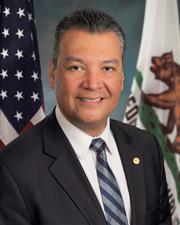0
Organic Science and Research Investment Act of 2023
3/13/2024, 12:04 AM
Summary of Bill S 2317
The bill aims to support organic farmers and producers by providing grants for research projects that focus on improving organic farming practices, developing new organic products, and increasing the overall sustainability of organic agriculture. Additionally, the bill seeks to establish a competitive grant program to fund research on organic farming methods, soil health, and pest management.
Furthermore, the Organic Science and Research Investment Act of 2023 aims to increase collaboration between government agencies, universities, and private organizations in order to advance organic agriculture research. The bill also includes provisions to support education and training programs for organic farmers and to promote the adoption of organic farming practices. Overall, the Organic Science and Research Investment Act of 2023 is a comprehensive piece of legislation that seeks to promote innovation and sustainability in the field of organic agriculture through increased funding for research and development.
Congressional Summary of S 2317
Organic Science and Research Investment Act of 2023
This bill expands Department of Agriculture (USDA) support for organic agricultural research.
USDA must establish the Coordinating and Expanding Organic Research Initiative for USDA resources dedicated to organic agricultural research. Every five years, the initiative must survey USDA's organic agricultural research and produce a report, including findings and recommendations on expanding research and increasing coordination. USDA must take the findings and recommendations into consideration when preparing USDA's annual budget recommendations.
The bill also reauthorizes, and increases funding for, the National Institute of Food and Agriculture’s Organic Agriculture Research and Extension Initiative through FY2028. Further, eligible grant projects are expanded to include (1) facilitating the identification and adoption of traditional ecological knowledge and cultural practices, and (2) identifying how organic agriculture can adapt to and mitigate climate change.
The bill also reauthorizes, and extends funding for, organic production and market data initiatives of the Economic Research Service (ERS) through FY2028. ERS must conduct an economic impact analysis of organic agricultural management conducted in accordance with the National Organic Program and submit a report to Congress.
USDA may make competitive grants to support research, education, and extension activities relating to the transition from nonorganic into organic agricultural production systems.
Further, the Agricultural Research Service must submit a report to Congress on the resources needed to maintain a proportion of certified organic agricultural land acreage for research so that it is equal to or greater than the organic agriculture industry’s market share of agricultural production.





